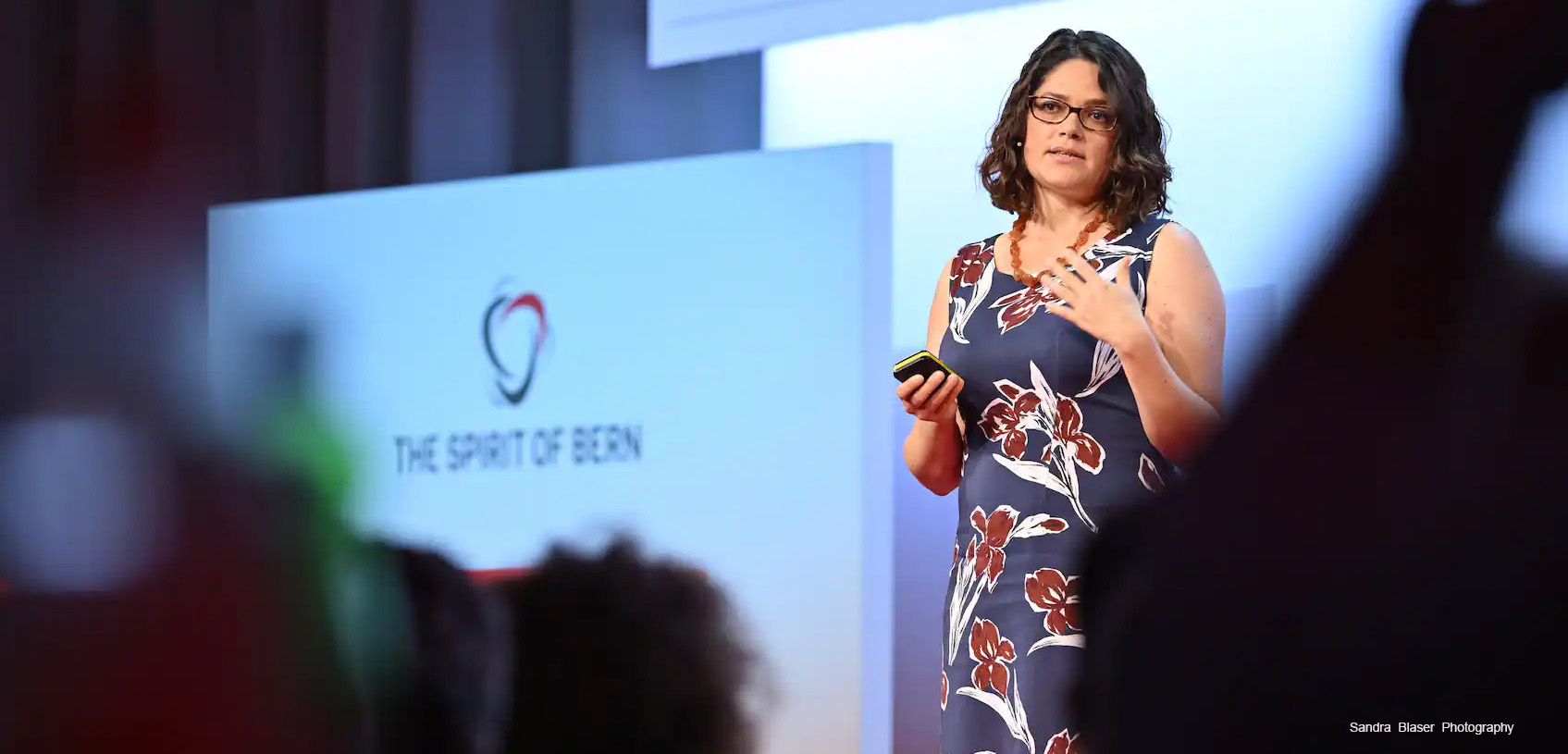Highlights
The Spirit of Bern
On 24 August 2023, over 500 experts from science, business, and politics met at the high-profile “Spirit of Bern” event to discuss how the gap between health, the environment, and food production can be closed. A fundamental rethink is needed to make food systems fit for the future. In her keynote speech, CDE scientist Theresa Tribaldos called for a move away from “either/or solutions”.
“The global food system can be described as a global network of relatively few agricultural exporters that trade large amounts of commodity crops produced on large areas of land in an intensive, standardized, and mechanized manner,” said Theresa Tribaldos in her presentation.
According to Theresa Tribaldos, this kind of agriculture is capital and technology-intensive and a large volume of the production is used for animal feed rather than for human food. The resulting commodities are further processed by a handful of big companies, who turn them into cheap, highly processed, unhealthy foods that cause serious health problems and harm demand for local fresh foods.
In short:
“Food insecurity is a result of poverty and failure to access enough healthy food rather than a lack of production.”
Theresa Tribaldos
As major food-system challenges, Theresa Tribaldos pointed to the problems of “food security and unhealthy diets, poverty and inequality, high climate emissions, and biodiversity crises.” She highlighted that
- over 3.1 billion people worldwide cannot afford a healthy diet – especially women, uneducated people, indigenous people and poorer sections of the populations;
- food prices rose sharply again in 2023; and
- food insecurity is a result of poverty and failure to access enough healthy food rather than a lack of production.
“These challenges can and must be addressed at different levels simultaneously by searching for synergies between promising solutions,” she added.
In the discussion following her presentation, Theresa Tribaldos emphasized: “If we want to tackle climate change and biodiversity, we need to shift away from large monocultures. And we must also begin to transform the large monocultures that already exist back into more diverse systems.”
